Marine breakaway coupling types Archive
15 Nov 2024
PetalC and Petal17 – what has changed with Gall Thomson’s latest Marine Breakaway Coupling evolution
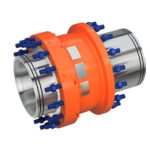
PetalC, the latest addition to Gall Thomson’s Petal Valve Marine Breakaway Coupling (MBC) range is hailed as a significant advancement in MBC technology, but how does it differ from Petal17, the established market leader? The PetalC MBC has been designed to enhance protection of breakstuds during exceptional bending movements without affecting their axial load performance
07 Jun 2024
Gall Thomson confirms total known Marine Breakaway Couplings activations for 2023
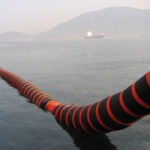
Gall Thomson has revealed there were 16 known activations of its Marine Breakaway Couplings during 2023. The activations occurred in nine different countries around the world. On each occasion, the Marine Breakaway Coupling (MBC) operated exactly as expected. Oil spills, injuries and damage to assets such as vessels, hoses or facilities was avoided. There
01 Feb 2024
How does a marinе brеakaway coupling work?
A Marinе Brеakaway Coupling (MBC) is a safеty dеvicе usеd in thе transfеr of liquids and gasеs in marinе еnvironmеnts, dеsignеd to prеvеnt spills and protеct еquipmеnt and pеrsonnеl in thе еvеnt of a vеssеl drift or еxtrеmе prеssurе surgе. Thеsе couplings arе еssеntial in opеrations involving thе transfеr of hazardous or non-hazardous liquids
14 Jun 2023
Gall Thomson PetalC Breakaway Coupling
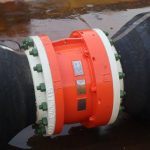
Application Hose offshore transfer of media between Floating Production Storage and Offloading platforms (FPSOs) and tankers or between tankers or vessels – specifically relevant to reel applications. Purpose The offshore marine breakaway coupling is designed to protect a transfer operation in an emergency. This coupling will automatically activate due to either one of two ends
16 Nov 2022
How do container ships refuel?
Container ships are pivotal to much of the international trade that occurs across the globe. They typically carry manufactured goods and products from one destination to another on scheduled services. The amount of fuel carried on board will depend on the ship’s engine capacity, size, and travelling speed. A ship that typically holds up to
18 Oct 2022
Gall Thomson Launches Anti-Pollution Safety Marine Breakaway Coupling That Sets New Performance Standards For Fpso Hose Reel Applications
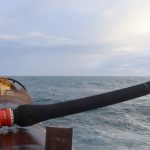
The inventor and market-leader of Marine Breakaway Couplings (MBC), Gall Thomson, has announced the latest evolution, PetalC, which reduces axial loads on the most exposed breakstuds by up to 30 per cent and reduces MBC install length by 60 per cent. Gall Thomson MBCs are fitted to marine hoses used in offshore operations to transfer
09 Aug 2019
Why is the Gall Thomson Marine Breakaway Coupling setting new Industry Standards?
2019 marks the fortieth anniversary of Gall Thomson’s launch of the innovative Flip-Flap Marine Breakaway Coupling (MBC). The device has since been in constant daily use in thousands of locations throughout the world in the toughest of marine conditions. Over a span of four decades, Gall Thomson’s MBC has proven time and again that its
27 Apr 2017
Gall Thomson Launches Most Advanced Marine Breakaway Coupling Yet
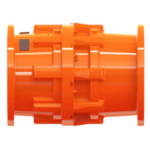
Gall Thomson is the specialist in Marine Breakaway Coupling technology with over forty years field based operational experience in delivering secure offshore hydrocarbon product transfer. The Marine Breakaway Coupling (MBC) was developed to aid the safe movement of crude oil, heavy fuel oil and similar products. In the event of a vessel breaking its mooring
09 Sep 2016
What are Cam-lock couplings and when should you use them
Cam-lock couplings Cam-locks are a hose couplings used to connect fittings on piping. They are available in different materials and can be used in various mediums.They replace the traditional, unsafe and time-consuming nut, bolt flange and drift pin methods of pipe connection. A lever or joint on the cam lock coupling connects one hose pipe
05 Apr 2016
The Important Features That Make Marine Breakaway Couplings So Vital
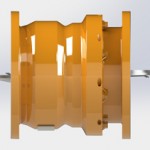
Marine Breakaway Couplings (MBCs) are an essential safety device in many onshore and offshore installations where fluids are transferred from vessel to vessel, usually under a considerable amount of pressure. In these conditions, an uncontrolled failure of the fluid transfer system can have potentially devastating consequences, both in terms of human safety and in damage
- 1
- 2